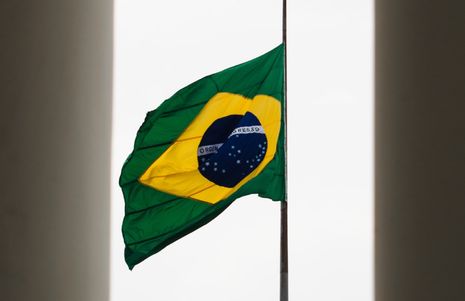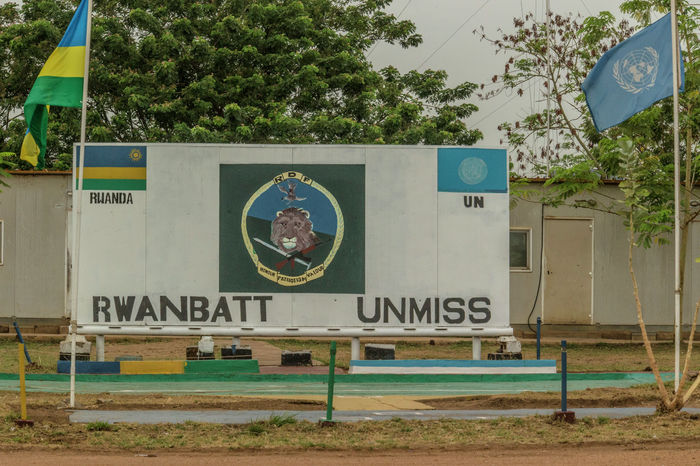Brazil’s Covid failures carry lessons for the UK
Eric Williams argues that the left-wing resurgence in Brazil following the Bolsonaro government’s catastrophic handling of Covid-19 shows similarities to the situation in the UK

As we approach the end of another year dominated by Covid-19, the legacy of right-wing governments’ handling of the crisis is coming under greater scrutiny.
Last month, Brazil’s Senate Committee formally approved a report recommending that President Bolsonaro face charges of ‘crimes against humanity’ at the International Criminal Court. The report was the culmination of a six-month-long congressional inquiry into the Bolsonaro administration’s conduct over the course of the pandemic. The country has lost over 600,000 people to the virus in the past year and a half, making Brazil the nation with the world’s second-highest death toll, and Brazilians have taken to the streets to protest the government’s inhumane policies. Bolsonaro has consistently downplayed the severity of the virus, blocked local initiatives to contain its spread, and criticised measures as simple as mask-wearing for what he has called ‘the little flu’: actions reflective of a disregard for the value of Brazilian lives that has enabled 300,000 avoidable deaths.
Bolsonarismo politics is grounded in a Social-Darwinist belief in the survival of the fittest. On top of physical health, it is seen as natural that an individual’s economic and social position should determine how vulnerable they are; the weak suffer what they must in a worldview that criticises the most basic public health policies as making Brazil a ‘country of sissies’. These are the neo-fascist ideological foundations on which Brazil’s New Right is built – a reality that existed long before the pandemic. Indeed, its doctrines stem from a long history of right-wing authoritarian regimes in Latin America, with roots in both the US-backed Brazilian military dictatorship of the 1960s to 1980s and the famous neoliberal experiment of Pinochet’s Chile. Bolsonaro’s Finance Minister, Paulo Guedes, a member of the ‘Chicago Boys’ and student of Milton Friedman, was instrumental in the Pinochet regime’s restructuring of Chile towards export-led growth via the privatisation of public assets, deregulation of natural resource exploitation, and the facilitation of foreign capital. Since the election victory in 2019, Guedes has pursued similar neoliberal reforms at great cost to Brazil’s poor. In such a short period, sweeping pension ‘reforms’, the privatisation of water and sanitation, and the dismantling of free higher education, have all been rushed through in Guedes’ crusade against Brazil’s already-fragile welfare state.
“Brazil is an example of how Covid-19 has magnified pre-existing political priorities”
Given this context, we should not be surprised by Bolsonaro’s handling of the pandemic. After an initial provision of emergency aid payments, the government’s scaling-back of support, coupled with weakened welfare provisions, has left unemployment at a record high of 14.7%. The country has entered a severe economic crisis, with millions plunged into extreme poverty and hunger. Brazil is an example of how Covid-19 has magnified pre-existing political priorities; in a country plagued by inequality and governed by a deeply reactionary far-right administration, is it any wonder that the pandemic response failed to value each human life with basic dignity? As the scale of suffering grows, the Senate Committee’s report is an important moment of recognition for Brazil.
“The impact of the inquiry on an already deeply-dissatisfied public opinion in the run-up to the 2022 general election may prove significant”
Whilst it is unlikely that the President will face charges or impeachment, the impact of the inquiry on an already deeply-dissatisfied public opinion in the run-up to the 2022 general election may prove significant. Bolsonaro’s poll numbers are currently at record lows, with former President Lula da Silva the frontrunner to win next year. Such a result would be of huge domestic and international significance, underlining the recent resurgence of leftist movements across Latin America. Lula, a founder of the Brazilian Worker’s Party (PT), brought ground-breaking improvements to the lives of ordinary Brazilians during his time in office from 2003-2010.
After decades of widening inequality, increasing poverty, and malnutrition, Lula’s variant of the pink tide (a wave of left-wing Latin American governments in the 2000s) made significant social transformations during a period of international hostility to left-wing politics. Amongst other features of his comprehensive programme to combat the wretched living conditions facing the nation’s poor was the Bolsa Família programme, a monthly cash transfer to low-income mothers, which lifted 40 million people out of poverty. In a dramatic pre-election twist, Sergio Moro has announced his intention to represent Brazil’s socially conservative Podemos party in a Presidential run against Lula and Bolsonaro. Moro was the judge in the Carwash Investigation case that sent Lula to jail in 2018, before leaked correspondence revealed collusion between Moro and the prosecution, enabling Lula’s release from a politically-motivated imprisonment on appeal in 2019. In recent polling, Moro’s attempt to reach Brazil’s third-way vote has not broken 10% of the electorate; meanwhile, Lula consistently leads Bolsonaro by over 20 points.
The UK has much to learn from these currents in Brazil. Our experience of the pandemic has been similar, with political and economic conditions exacerbating the crisis. It is worth noting that in the same month that the Pandora papers revealed Paulo Guedes to be profiting from offshore accounts whilst 112 million Brazilians faced food insecurity, the Parliamentary Commissioner for Standards found Conservative MP Owen Paterson guilty for breaching paid advocacy rules. As we look back on a second year of the NHS being overwhelmed with COVID-19 patients, it is vital to keep the decade of Tory healthcare cuts at the forefront of our minds. In Latin America, it seems that the pandemic has triggered the embrace of a political alternative grounded in respect for each human life. As the sleaze crisis hurts Conservative support in the polls, the Labour Party has a huge opportunity to capitalise on what should be a period of reckoning.
 News / Cambridge study finds students learn better with notes than AI13 December 2025
News / Cambridge study finds students learn better with notes than AI13 December 2025 News / Cambridge Vet School gets lifeline year to stay accredited28 November 2025
News / Cambridge Vet School gets lifeline year to stay accredited28 November 2025 Science / Did your ex trip on King’s Parade? The science behind the ‘ick’12 December 2025
Science / Did your ex trip on King’s Parade? The science behind the ‘ick’12 December 2025 News / Uni Scout and Guide Club affirms trans inclusion 12 December 2025
News / Uni Scout and Guide Club affirms trans inclusion 12 December 2025 Arts / Modern Modernist Centenary: T. S. Eliot13 December 2025
Arts / Modern Modernist Centenary: T. S. Eliot13 December 2025











